Complimentary Interventions in Addiction Treatment
Video by Dr. Dawn Elise Snipes on Complimentary Interventions in Addiction Treatment and integrative behavioral health approaches to improving mental health and reducing mental illness.
CEUs available at: https://www.allceus.com/member/cart/index/product/id/697/c/
Want to listen to it as a podcast instead? Subscribe to Counselor Toolbox Podcast https://pod.link/1120947649
Please SUBSCRIBE and click the BELL to be notified when we release new videos and when Dr. Dawn Elise Snipes is going live each month. Access additional benefits by JOINING here https://www.youtube.com/channel/UCAE3JJi8tX7gfhZEXCUGd_A/join
#addictiontreatment #yoga #accupuncture
Objectives
~ Explore various types of complimentary therapies which can be used in the treatment of chemical and behavioral addictions.
Concurrent Treatment for Biological Issues
Mental Health Issues caused by neurochemical imbalance due to genetics or the effects of tolerance/withdrawal
Acupuncture/Acupressure
~ Acupuncture is one of the more widely used alternative therapies within the context of addictions and behavioral health treatment (SAMHSA)
~ It reduces cravings, improves mood and has been associated with a reduction in psychotic symptoms
~ Acupressure
~ Use of magnets “seeds”
~ Use of lasers and “electro-acupuncture”
Brain Modulation
~ Current research on these treatments is anecdotal or limited at best but they show promise
~ Transcranial Magnetic Stimulation (TMS) has shown some promise for reducing cravings in the short term
~ EEG & fMRI Neurofeedback patients learn to modulate their own brain activity through feedback from the MRI or EEG machine. It has shown some promise for reducing cravings
~ Deep Brain Stimulation (invasive): Case studies report prolonged abstinence of opioids or alcohol with ventral striatal DBS
Biofeedback
~ Using resting heart rate / pulse and respiration patients are able to
~ Reduce their systemic hyperarousal (HPA-Axis)
~ Increase their feelings of control over their emotions and urges
~ Altered the information flow from the prefrontal cortex to the default mode network (wakeful rest)
CBD
~ There is a growing body of preclinical and clinical evidence to support use of CBD oils for many conditions, suggesting its potential role as another option for treating challenging chronic pain or addiction
~ CBD & stimulants
~ Prevention of drug-induced neuroadaptations (excitotoxicity)
~ Reverses cognitive deficits
~ Alleviates symptoms of comorbid mental disorders
Light Therapy
~ Light Therapy helps reset circadian rhythms
~ Sunlight increases vitamin D which has been shown to improve mood, reduce inflammation and regulate circadian rhythms
Hypnosis
~ Some studies have shown decreased craving via hypnotic aversion suggestions through top-down regulation of the prefrontal cortex as evidenced through MRIs
Kratom
~ Some people use Kratom to self-detox from opioids or alcohol. Currently this is not a medically approved approach.
~ Kratom is not illegal and not regulated for purity or potency by the FDA
~ Kratom takes effect after five to 10 minutes, and its effects last two to five hours.
~ In animals, kratom appears to be more potent than morphine.
~ Kratom can be addictive
Summary
~ Addiction is a biopsychosocial condition
~ No single treatment or intervention is likely sufficient for sustained recovery.
~ Many complimentary therapies help rebalance the neurotransmitters / CNS which often underly craving, withdrawal symptoms and mood issues which are being self-medicated.
~ Many therapies can be used in conjunction to address the myriad of underlying issues contributing to relapse risk (depression, anxiety, low self efficacy, insomnia, fatigue, pan)
AllCEUs provides multimedia #counseloreducation and CEUs for LPCs, LMHCs, LMFTs and LCSWs as well as #addiction counselor precertification training and continuing education.
Live, Interactive Webinars ($5)
Unlimited Counseling CEs for $59
#AllCEUs courses are accepted in most states because we are approved as an education provider for NAADAC, the States of Florida and Texas Boards of Social Work and Mental Health/Professional Counseling, the California Consortium for Addiction Professionals and Professions, the Australian Counselling Association, National Counsel for Therapeutic Recreation Certification NCTRC, CRCC, PA Certification Board, Canadian Counselling and Psychotherapy Association and more. and more...
#DrDawnEliseSnipes provides training through #allceus that are helpful for #LPCCEUs #LMHCCEUs #LCPCCEUs #LSWCEUs #LCSWCEUs #LMFTCEUs #CRCCEUs #LADCCEUs #CADCCEUs #MACCEUs #CAPCEUs #NCCCEUS #LCDCCEUs #CPRSCEUs #CTRSCEUs and more. #HPCSA #ACA #NBCC #NCMHCE #addiction #recovery #mentalhealth#addictionrecovery #depression #anxiety #wedorecover #motivation #mentalhealthawareness #addictionawareness #recoverymonth
-
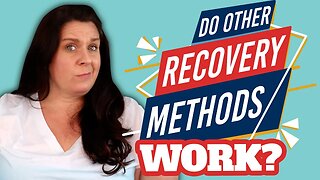 13:00
13:00
Addiction Recovery
3 years agoAlternatives to 12-Step Programs for Addiction Recovery
23 -
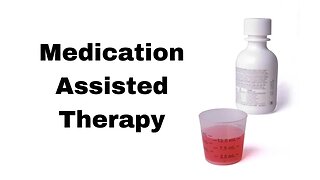 57:21
57:21
DocSnipes
3 years agoMedication Assisted Therapies for Addiction
25 -
 4:46
4:46
Dr. Eric Berg
4 years agoThe #1 Thing Missing in Addiction Recovery
18 -
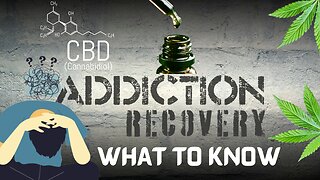 1:38
1:38
News And Media
1 year agoCBD For Addiction Recovery What You Should Know
288 -
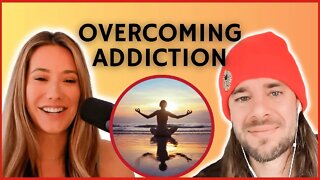 1:12:48
1:12:48
Candice Horbacz
2 years agoBreath work, Overcoming Addiction, and Psychedelics with Robbie Bent #63
332 -
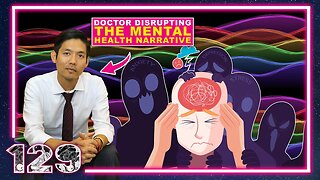 1:20:35
1:20:35
Far Out With Faust
3 months agoReclaiming Control: Rethinking Addiction and Mental Health Treatment | StreetMD Podcast
407 -
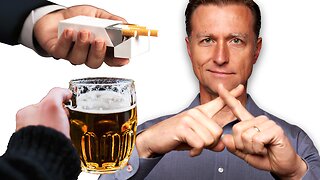 4:41
4:41
Dr. Eric Berg
2 months agoHow to Stop Addictions (Nicotine, Alcohol, & Drugs)
9.68K38 -
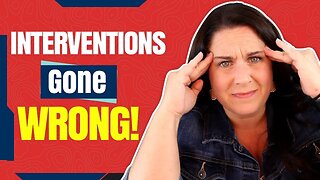 25:33
25:33
Addiction Recovery
3 years agoAddiction Intervention Strategies (What Works and What Doesn't)
6 -
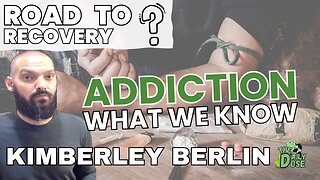 1:51:08
1:51:08
News And Media
8 months agoAddiction And Relapse The Broken Systems Of Recovery With Kimberley Berlin
155 -
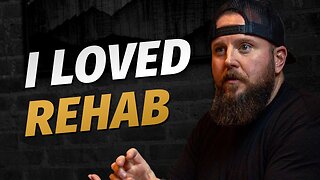 6:15
6:15
Willie McKenzie
6 months agoRehab: An Addicts Journey of Relapse and Recovery
36